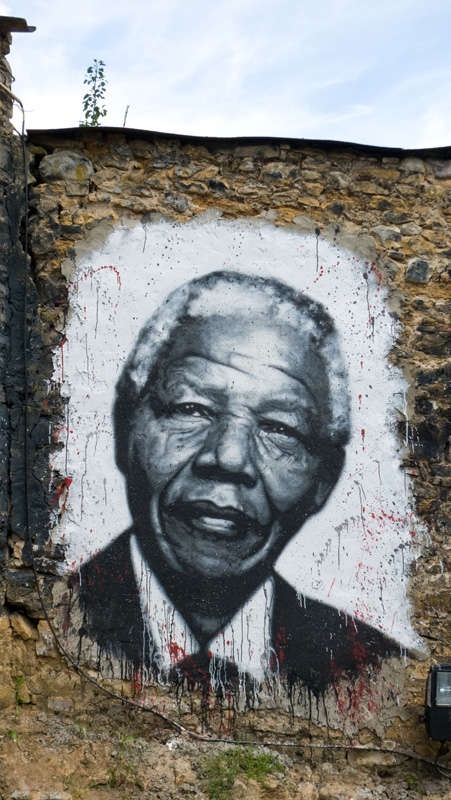“If you talk to a man in a language he understands, that goes to his head. If you talk to him in his language, that goes to his heart.” Nelson Mandela
There are many who may be at a loss for words following the tragic news of legendary hero Nelson Mandela’s death last week, but surprisingly not all the words that have been said or written about him are wonderful praise for the man who spent 27 years in prison for fighting to end white minority rule. And yet, Mandela himself, has left behind memorable words of his own, such as “Money won’t create success, the freedom to make it will,” and the famous quote,” It always seems impossible until it’s done”.
Mandela, who won universal acclaim for negotiating a peaceful transition to democracy, died on December 5th at his Johannesburg home following a year of illness. Today, thousands of South Africans lined up to view the body of the famous leader outside the Union Buildings in Pretoria - the nation’s seat of government - where it will lie in state for three days. His head and shoulders visible behind a glass cover, the coffin lay in an open amphitheatre. The first to walk past were South African President Jacob Zuma, Mandela’s wife Graca Machel and former wife Winnie Madikizela-Mandela and F.W. de Klerk, the nation’s last white leader who shared the 1993 Nobel Peace Prize with Mandela. The government expected as many as 2,000 people an hour to file past Mandela’s casket. Thousands of people had been waiting since sunrise outside the Union Buildings to see Mandela’s body. The majority of them have said that they cannot find the words to express how grateful they are to Nelson Mandela, although now that he is gone forever, they are trying.
Then there are others who have uttered words that have shocked the silent in mourning: that Mandela sold out black South Africans, when he struck a deal from prison with F.W. de Klerk, a deal which was then enshrined in the South African constitution, essentially guaranteeing the existing property rights of white South Africans in exchange for an end to apartheid. These people believe that although the deal made sense to the white people, after centuries of being robbed of possibly the greatest mineral wealth the world has ever known, not to mention decades of being repressed by apartheid, black South Africans got almost no compensation for what should rightfully have been theirs when the old regime was swept away for the new South Africa.
The international community rightly reveres Nelson Mandela as a man of peace. But there are some who declare that he was not a saint. Was Mandela right in all his actions? Did he sacrifice justice for the chance of a richer and more democratic South Africa? It depends on who you ask. But, at the end of the day, the man who freed both black and white South Africans from what was undeniably a cruel system, will leave behind masses of adoring fans, a legacy which has made its mark in history, and a plethora of words written by him, to him and about him.




